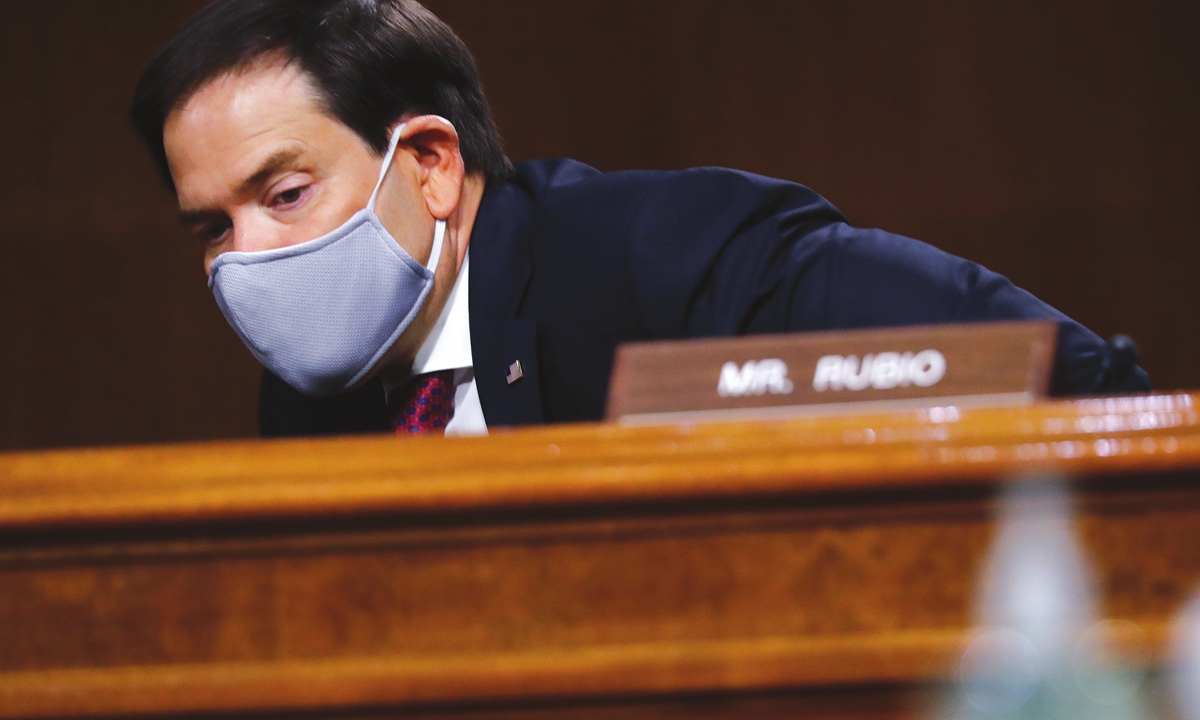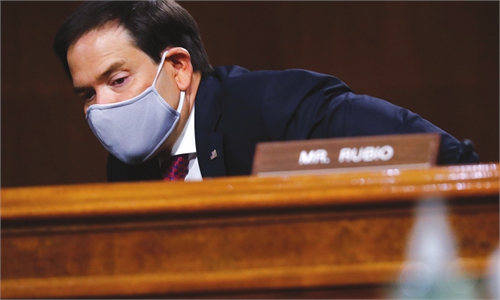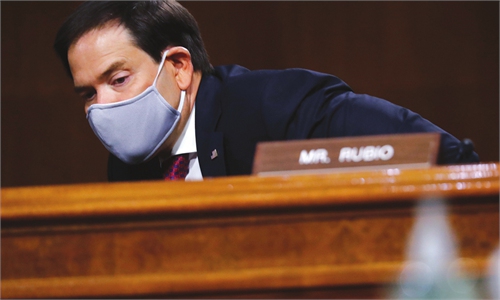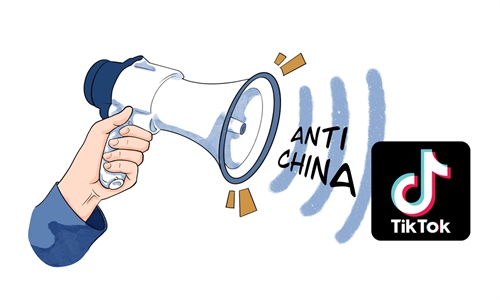
Marco Rubio arrives for a Senate Intelligence Committee nomination hearing. Photo: AFP
With only a few days to go before the 20th anniversary of China's accession to the WTO, it is ludicrous to see US Republican Senator Marco Rubio, like some internet influencers, take advantage of the situation to again blame China for the US' economic problems.Speaking at an event in Washington on Wednesday, Rubio called the China Relations Act of 2000, which allowed China to become a permanent member of the WTO, a "flawed bipartisan consensus," which had tripled the US trade deficit within five years, eliminated tens of thousands of American factories and cost US workers an estimated 2.5 billion jobs, Fox News reported.
While Rubio's extreme anti-China remarks have always been clear to observers, he hits a new low by quoting a series of bizarre figures. How did he figure out the 2.5 billion jobs when the combined labor force of China and the US is less than 1 billion? No one knows. But what is certain is that there are politicians in the US who struggle with even basic economic concepts. If it is a common practice for politicians in the US to spread false information and offer absurd views to attract attention, there's no wonder the US economy has suffered so brutally at the hands of these self-interested politicians.
The achievements China has made after its accession to the WTO are not up to what individual politicians say. Rubio may have observed domestic discontent toward America's economic problems, such as the high trade deficits, and then spun a connected political narrative to win headlines. His disregard of China's contributions to the US economy reflects only his political selfishness and arrogance.
In fact, trade imbalance doesn't necessarily mean unfair trade. There is no denying that China's trade surplus with the US is quite high, but it doesn't mean China is the only party that benefits from this bilateral trade. American consumers have been the biggest beneficiaries of this two-way process. For instance, a comprehensive study of China-US trade by Oxford Economics in 2018 found: "At an aggregate level, US consumer prices are 1-1.5 percent lower because of cheaper Chinese imports. The typical US household earns about $56,500... trade with China therefore saved these families up to $850."
Although some US manufacturing jobs have been lost because of the trade deficits, US companies sell high-value products to China, which support jobs in return. According to a report released by the US-China Business Council in January 2017, China-US trade supported some 2.6 million US jobs.
Moreover, China purchases a large quantity of Treasury bonds of the US which indirectly keeps the US government solvent and functioning. China joined the WTO in 2001, the same year the US launched the war on terror. To a certain extent, buying US bonds is a form of support China has provided to the US spending on infrastructure, defense and social welfare.
Also, the US recovered from the 2008 financial crisis quickly, avoiding a prolonged depression akin to the one in 1929. A main reason for this rebound was that China poured in 4 trillion yuan ($630 billion) to lift up the global economy, helping facilitate the recovery of the US.
We wouldn't be too surprised if the likes of Rubio have turned a blind eye to China's economic contributions to the world. After all, he has already proven more than once that he's a complete amateur when it comes to economics.
In fact, there are a number of politicians in the US Congress who are down with an anti-China syndrome and strike at anything Chinese, disregarding the reason. What they have poisoned is not just China-US relations, but also the political atmosphere in the US. Such extreme atmosphere spreading across the US political arena will only lead to a further US recession. US rivalry with China will become increasingly like a joke.



